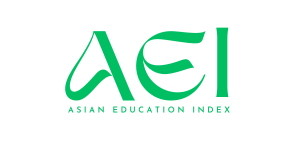Writing As A Productive Skill: Analysis Of Textbooks In Uzbekistan
Keywords:
writing, perspective, completionAbstract
It is known that Language serves as a fundamental tool for communication, manifesting in various forms such as spoken and written expressions. The essence of communication lies in conveying messages from the sender to the recipient, be it through writing or speech. As inherently social beings, humans recognize the indispensable nature of interaction for survival. Language permeates all facets of life as it facilitates the sharing of experiences, emotions, and ideas among individuals. Essentially, language serves as the medium for communication. This article provides an overview of the concept of writing as a productive skill that can enhance communication, creativity and critical thinking and the benefits of developing strong writing skills, including improved clarity and organization of ideas. And also The significance of analyzing textbooks in Uzbekistan for improving writing instructions cannot be overstated. By carefully examining the content and structure of textbooks used in English language education, educators can gain valuable insights into effective writing pedagogy. This analysis allows for the identification of strengths and weaknesses in current instructional materials, paving the way for targeted improvements that better meet the needs of students. Additionally, by aligning writing instruction with the content and objectives of textbooks, educators can create a cohesive and comprehensive learning experience for students. The systematic analysis of textbooks serves as a crucial foundation for enhancing writing instruction in Uzbekistan, empowering students to develop the necessary skills and confidence to succeed in their academic and professional endeavors. Significance of analyzing textbooks in Uzbekistan for improving writing instructions is carried out in the analysis
References
Sa’adah, A. R. (2020). Writing skill in teaching English: An overview. EDUCASIA: Jurnal
Pendidikan, Pengajaran, Dan Pembelajaran, 5(1)
Leggette, H. R., McKim, B., Homeyer, M., & Rutherford, T. (2015). Perspectives of writing
related to critical thinking and knowledge creation. NACTA Journal, 59(4)
Elbow, Peter (1994a). Teaching Two Kinds of Thinking by Teaching Writing. In: Kerry S.
Walters (ed.). Re-thinking Reason: New Perspectives in Critical Thinking. Albany: State
University of New York Press,
James A. W Heffernan and Jhon E. Lincoln, Writing A Collage Handbook (2nd Ed).(New
York : W.W Norton & Company Inc, 1986)
James A. W Heffernan and Jhon E. Lincoln, Writing A Collage Handbook (2nd Ed).(New
York : W.W Norton & Company Inc, 1986)
Jeremy Harmer.2001. The Practice of English Language Teaching.(Essex,England:
Longman)
https://obuchalka.org/20220327142572/fly-high-english-9-sinf-jurayev-l-2014.html
https://mbaza.uz/wp-content/uploads/2023/08/grade-9-sb.pdf
Salixova, N. (2024). Problems Of Equivalence In Translations And Interpretations For
Special Purposes. Центр Научных Публикаций (buxdu.Uz), 48(48)
Salixova, N. (2022). Ingliz Va O`zbek Tillarida Qo`llaniladigan Undovlarning Ma’no
Turlari: Linguistics. Центр Научных Публикаций (buxdu.Uz), 25(25)
Salixova, N. (2023). Коммуникативные Компетенции Преподавания Английского
Языка В Межкультурной Коммуникации. Центр Научных Публикаций (buxdu.Uz),
(44).
N. N. Salikhova. (2022). Interjections in the Contexts of Uzbek and English Languages.
Indonesian Journal of Innovation Studies, 18.
Downloads
Published
Issue
Section
License

This work is licensed under a Creative Commons Attribution-NonCommercial 4.0 International License.















